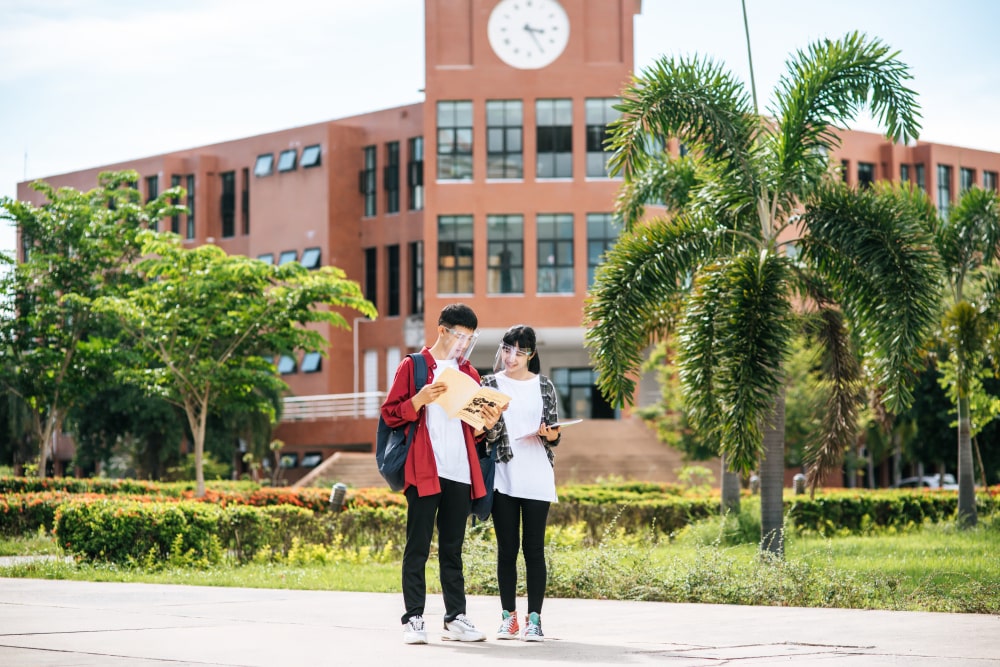The International Baccalaureate (IB) programme is a widely recognised and respected programme designed for students aged 3-19 and is becoming increasingly popular in Singapore. The programme offers a rigorous and well-rounded education that prepares students for success in their academic and personal lives, equipping them with unique skills and experiences highly valued by universities, employers, and communities alike.
The skills learned in an IB PYP school go beyond academics and focus on developing essential life skills and character traits. Here are the various skills that students can learn in an IB school.
Critical Thinking and Problem-Solving
The IB programme strongly emphasises developing critical thinking and problem-solving skills. These skills are essential in academic and real-world settings and are developed through various activities and assessments within the IB curriculum.
For example, students are encouraged to analyse and evaluate information from different perspectives and sources, identify patterns and connections and ask relevant questions. This helps students to become critical thinkers who can make informed decisions, solve complex problems, and effectively communicate their ideas.
Communication and Collaboration
Students learn the importance of effective communication and collaboration. They are taught how to communicate their ideas and thoughts clearly, concisely and convincingly, both verbally and in writing. Interpersonal skills are valuable as they help to communicate effectively with the world outside. In addition, students learn the importance of teamwork and collaboration, which is essential for success in many aspects of life, including education, the workplace, and personal relationships.
Cultural Awareness and Understanding
One of the critical goals of the IB programme is to promote intercultural understanding and respect. Students in IB schools are exposed to a wide range of cultural experiences, perspectives, and ideas. This helps students develop a greater appreciation and understanding of different cultures and a deeper understanding of their cultural identity. This exposure to different cultures and perspectives also helps students to become more tolerant, open-minded, and respectful of others, which is essential for success in an increasingly diverse and globalised world.
Independence and Self-Management
The IB programme encourages students to control their learning and become independent learners. This is achieved through various strategies, including self-directed study, independent research and project-based learning. Through these activities, students learn how to manage their time, set goals, prioritise tasks, and take responsibility for their learning. These skills are essential for success in higher education and the workplace, where managing one’s time and workload is essential.
Creativity and Innovation
The IB programme encourages students to think creatively and explore new and innovative ideas. This is achieved through various activities and assessments, including group projects, independent research and problem-based learning. These activities help students to develop their imagination, creativity, and problem-solving skills, which are essential for success in today’s rapidly changing world. By learning to think creatively and explore new ideas, students can become innovative and adaptive thinkers who can respond effectively to new challenges and opportunities.
Service Learning and Community Involvement
The IB programme places a strong emphasis on community involvement and service learning. This involves students participating in community service projects and activities that help to address the needs of their local and global communities. Through these experiences, students learn the importance of giving back to society and how they can positively impact the world. This helps to develop a sense of civic responsibility and a desire to make a positive difference in the world, which is essential for success in all areas of life.
Global Awareness and Responsibility
The IB programme promotes a global perspective and encourages students to understand and address our world’s challenges. This is achieved through various activities, assessments, and experiences, where students are encouraged to develop a global perspective and an understanding of the complex challenges facing our world today. This includes sustainability, social justice, equality, and human rights issues. By learning about these issues and exploring potential solutions, students can develop a sense of global responsibility and an understanding of their role in creating a better world.
To conclude, the fundamental goal of an IB school is to create holistic, knowledgeable, and responsible individuals who are prepared to make a positive impact in the world. The International Baccalaureate programme offered in private secondary school in Singapore provides students with a well-rounded and rigorous education that prepares them for success in their academic and personal lives. The skills and experiences gained in an IB school are essential for success in a rapidly changing and interconnected world. Whether students are pursuing higher education, a career, or simply seeking personal growth, the skills and experiences gained in an IB school will be invaluable.
With its focus on critical thinking, communication, cultural awareness, independence, creativity, community involvement, and global responsibility, the IB programme equips students with unique skills and experiences highly valued by universities, employers, and communities.




